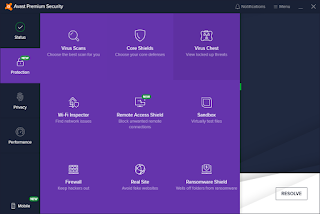What can VLC play?
Users download VLC to open a number
of video file formats. VLC is extremely flexible in terms of video and
audio formats, and most users use it to play audio and video files from a
number of sources, including DVDs, Audio CDs, VCDs, or any downloaded
videos off the internet.
The media player plays a number of
audio, video and text formats. The most popular video formats that can
be played with VLC media player include MPEG-½, WMV, Xvid, MPEG 4 AVC,
Theora, DivX, Real Video, etc. For audio, MPEG Layer, WMA, FLAC, Speex,
Mousepack, TrueAudio, Real Audio, APE, MIDI, and many others are
covered. And for text, DVD, MicroDVD, SubRip, VoSub, Universal Subtitle
Format (USF), and others are all compatible. To simplify, any .avi video
format will play, and for audio, any Mp3 format will work.
What is VLC Media Player compatible with?
VLC is compatible with all operating systems, namely Windows, Linux, Mac OS X, Unix, iOS, and Android. The program is versatile and works equally well on all operating systems. The media player is light and adapts easily to the operating system. So whether it is used on a Mac or a Windows, it gives optimal video or audio viewing experience.
What are some VLC features to check out?
Advanced
control settings are quite an interesting tool. One can adjust video
quality, volume, sound quality, subtitle synchronization, add video and
audio filters, adjust the video according to the screen, and more. To
customize further, an unlimited number of plugins can be installed to
enhance the video and audio files.
What are the alternatives to VLC Media Player?
VLC
is widely the most popular media player that people prefer to download.
Some of the other media players that are direct competitors to VLC are Potplayer, MX Player, KM Player, mpc-hc, 5k player, Windows Media Player, Quicktime, bsplayer, vsync, PowerDVD, and others.
Mainly,
VLC has competition with players that come pre-installed with the
operating system. For instance, a Windows system will come preloaded
with a Windows Media Player, and unless users download VLC or any other
media player, they will continue using the pre-loaded program. Also, VLC
supports a vast number of formats, and there are
hardly any codec errors, while other players like Windows or Quicktime,
may have a restricted number of formats that are used.
Is VLC media player safe to use?
One
of the most unique features of VLC is that it does not collect any user
information and does not collect any data when you download it. You do
not need to open an account to download, but can simply download it and
start using without any sign-up process. In terms of viruses entering
through VLC, the malware may be on the multimedia files that are played
through the VLC, from the internet or from an external device, but VLC
itself is not a malware or an unsafe platform. Other than that, there is no spyware, no advertisements, and no user tracking on VLC.
What are the main advantages of the VLC media player?
The
biggest plus point for VLC is its flexibility and compatibility with a
large number of file formats, its versatility in terms of input devices,
and the homogeneity across different operating systems and devices. VLC
is the go-to media player for movies and videos, as
they are supported by the player, without any hassles or errors. The
various versions of VLC add new features every time and are excellent
with their updates
As a default media player for many users, VLC
supports files from DVDs, Audio CDs, VCDs, and downloaded files easily.
One can play compressed files directly, without having to convert them.
It is user-friendly and has a simple and intuitive interface
that is not complicated to navigate. Another big advantage is that the
player is completely free, and one can download it on any operating
system at no cost or hassle.
What are the main disadvantages of the VLC media player?
While
it seems like VLC can do everything with audio and video, it’s good to
remember that VLC is after-all just a media player and not a media
editor. So, VLC will not be able to rip CDs or burn CDs and DVDs,
follows great streaming protocols, it can only play the files that are
input through other devices or sources.
There is little else that
can be done with the quality of the media files that VLC plays, apart
from making some adjustments with volume and video filters. One cannot
use VLC to create new video or audio files. VLC also cannot organize
media files or use VLC to store files, like on a cloud. Other features
like visualizations to music are also not available, which may be found
in other players.
































